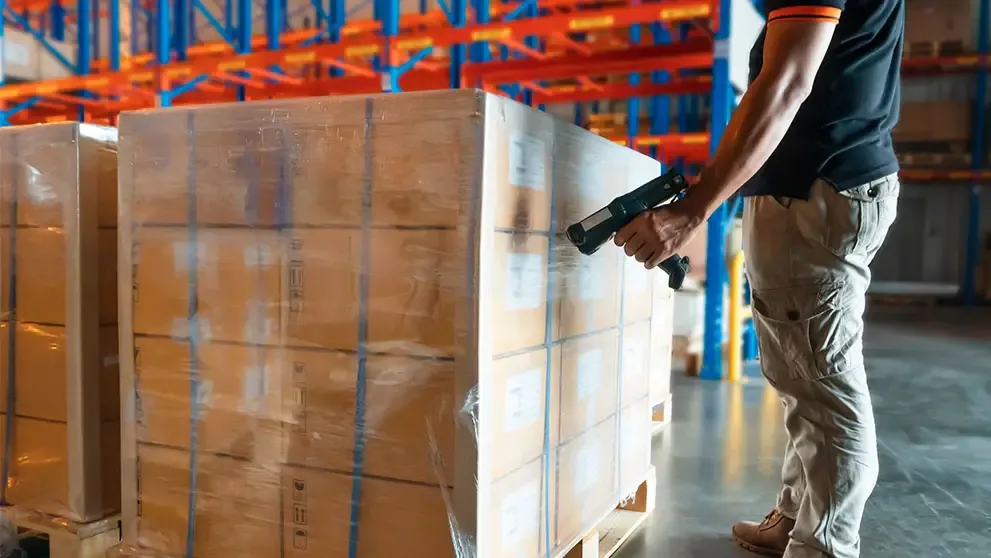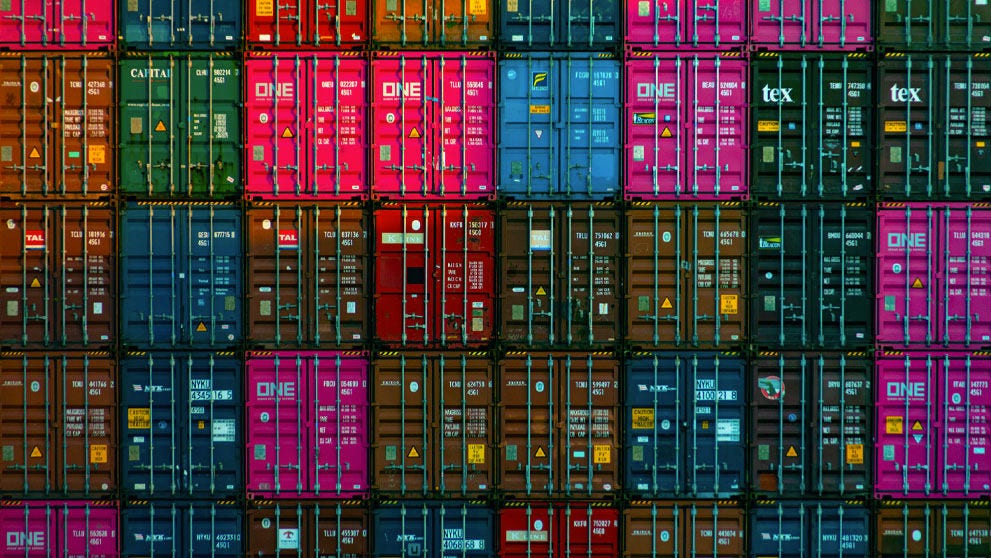
In today's global economy, the export market is critical in driving economic growth and prosperity internationally. For Bangladesh, exports are a key component of its economy and present significant expanding opportunities for local businesses. From the lively streets of Dhaka to the coastal regions, Bangladesh’s export businesses are tapping into the vast potential of international trade. However, navigating the complexities of international trade requires insight and foresight. Identifying which exports hold the most significant potential is crucial for expanding businesses internationally and establishing themselves as key players on the global stage.
What are the major exports of Bangladesh?
1. Ready-made garments
One of the top four export products of Bangladesh includes their ready-made garments. According to the Embassy of the People’s Republic of Bangladesh, the export value of Bangladesh’s Ready-Made Garment sector reached an estimated $31.46 billion. The demand for ready-made garments is strong across various international markets due to several factors. Firstly, Bangladesh offers competitive labour costs, making it an attractive destination for garment manufacturing. Additionally, the country has developed a solid infrastructure to support the garment industry, including specialised economic zones and industrial parks.
Furthermore, Bangladesh benefits from preferential trade agreements with key export destinations, such as the European Union and the United States, providing tariff advantages for its garment exports. The global demand for Bangladesh's ready-made garments continues to rise, driven by changing consumer preferences, fashion trends, and the rise of e-commerce platforms.
To excel in tapping into the global demand for Bangladesh's ready-made garments, businesses should consider the following strategies:
- Establish partnerships with reliable logistics providers such as DHL Express to ensure efficient international shipping from Bangladesh, minimise transit times, reduce the risk of delays, and maintain precise quality control throughout the shipping process.
- Utilise advanced shipping solutions and robust supply chain networks to optimise operations and effectively meet the evolving needs of global consumers.
2. Jute and jute products
Jute and jute products made in Bangladesh are profoundly significant in the country's exports, yielding $59 million for raw jute exports in 2021-22. Bangladesh, as one of the world's largest exporters of jute, has a rich heritage in cultivating and manufacturing this versatile fibre. Jute's importance extends beyond its economic value, as it significantly promotes environmental sustainability. As a natural, biodegradable fibre with minimal environmental impact, jute is an eco-friendly alternative to synthetic materials.
In recent years, there has been a growing global demand for sustainable and biodegradable products, driving the popularity of jute and jute products in international markets. Businesses can capitalise on this trend by incorporating jute into their product lines and marketing it as an environmentally conscious choice. Moreover, promoting the eco-friendly attributes of jute can enhance brand reputation and appeal to environmentally conscious consumers.
To leverage jute exports effectively and promote sustainability, businesses can adopt various strategies:
- Investing in research and development to innovate new jute-based products, such as biodegradable packaging materials and textiles.
- Embracing jute exports and promoting sustainability not only contribute to Bangladesh's export growth but also make a positive impact on the environment and society as a whole.
3. Fish, shrimps, and prawns
Bangladesh's seafood industry has immense export potential, driven by the country's rich aquatic resources and strategic geographic location. Aquaculture products such as fish, shrimps, and prawns from Bangladesh are exported to over 50 countries, with significant importers including the European Union, the USA, Japan, Russia, and China. This widespread demand underscores Bangladesh's seafood exports' global appeal and market competitiveness.
Rising consumer preferences for healthy and sustainable protein sources fuel the strong demand for fish, shrimp, and prawns. As consumers become increasingly health-conscious, the demand for seafood products has grown significantly, presenting numerous opportunities for businesses operating in the seafood export market.
To succeed in the seafood export market, businesses should consider implementing the following strategies:
- Enforce precise quality control measures and adhere to food safety standards to establish customer credibility and trust.
- Invest in sustainable fishing practices and aquaculture techniques to ensure the long-term viability of Bangladesh's seafood industry and meet the sustainability requirements of international markets.
- Embrace sustainability and prioritise compliance with international standards to position themselves as reliable suppliers of high-quality seafood products, maximising export potential and contributing to Bangladesh's economic growth.
4. Leather and leather products
Bangladesh's exports of leather and leather products have gained significant attraction in international markets due to the country's skilled craftsmanship and competitive pricing. With a diverse range of leather goods, including footwear, handbags, and accessories, Bangladesh caters to the diverse tastes of consumers worldwide.
The appeal of Bangladesh's leather products lies in their combination of superior quality and affordability, making them highly desirable in international markets. The country's leather industry has also earned recognition for its adherence to ethical manufacturing practices and environmental sustainability, further enhancing the appeal of Bangladesh leather products globally.
To enhance the quality and value of leather exports, businesses can focus on the following key strategies:
- Invest in advanced manufacturing technologies and techniques to improve production efficiency and product quality, ensuring compliance with international standards and meeting customer expectations.
- Collaborate with renowned designers and brands to elevate the perceived value of Bangladesh leather goods, positioning them as premium offerings in the global market.
Challenges of exporting from Bangladesh
Exporting from Bangladesh presents businesses with various challenges that require careful navigation to ensure success in international markets. Common obstacles include:
- Transportation and logistics challenges often stem from inadequate infrastructure and inefficient customs clearance processes, leading to delays and increased costs. These challenges impact export operations and affect the timely import of necessary materials and components for manufacturing processes.
- Financing hurdles, such as limited access to credit and high-interest rates, can pose significant barriers to businesses seeking to expand their export activities.
- Compliance with international trade regulations and standards can be complex and time-consuming, necessitating businesses to remain informed about changing requirements and invest in compliance resources. For instance, according to the data from Bangladesh Fruits, Vegetables & Allied Products Exporters' Association, Bangladesh's agricultural products exports, such as green banana, papaya, and potato exports, have declined by 68.7% in the past decade due to a lack of good farming practices.
To overcome these challenges, businesses can implement several recommendations and solutions. Improving transportation infrastructure and streamlining customs procedures can help reduce transit times and logistics costs. Accessing financial assistance programmes and seeking alternative financing options can alleviate funding constraints and support export activities. Moreover, leveraging technology solutions for trade documentation and compliance management can enhance efficiency and ensure adherence to regulatory requirements. By proactively addressing these challenges and adopting strategic approaches, businesses can minimise risks and maximise opportunities for successful exporting from Bangladesh.
Explore global opportunities with DHL Express
To expand global reach, businesses should seize the opportunities presented by Bangladesh's thriving export sectors. While exploring global opportunities, having a reliable international logistics partner is crucial, especially when considering how to expand export business. DHL Express is a trusted partner facilitating seamless exports, offering overseas shipping services tailored to meet businesses' diverse needs. With DHL’s service, companies can benefit from door-to-door and overnight delivery options, ensuring swift and efficient transportation of their goods to international markets.
Businesses can also unlock numerous advantages by partnering with DHL Express, including access to a global network, streamlined shipping services, and exceptional customer support. Open a business account with DHL Express today and confidently navigate through the complexities of international trade.


















